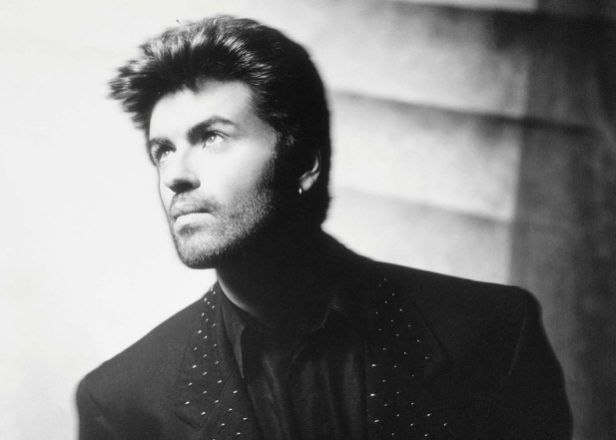Analysis: George Michael’s “Waiting for That Day”
- George Michael was inspired to write this mournful song when he was having a discussion with friends about the excessive use of the intro to James Brown’s “Funky Drummer.” Many tunes in the Top 30 at the time sampled the slowed-down drum track from Brown’s original upbeat song. Michael explained in MTV’s Rockumentary his process of creating this tune. “I had this idea of taking something or taking that particular drum track and placing something completely different, something completely out of context, over the top of it,” he said. “I thought I’d put something completely folk over the top of it.”
He continued to express his desire to mesh two particular genres and sounds together. “So I started writing around that and then just playing about with a keyboard. I just found the two chords that went with those guitar chords. But the sound itself made me think that maybe I should take the song in a slightly different direction because the sound was this sound, which is very ’60s. It’s like Procol Harum or something like that; very, very ’60s sound. And when you combine these two things, you get an altogether different feel.
So I actually left the guitars reasonably low down in the mix. So then I basically had to write something that fitted that feel, and, I mean, this is the first track on this particular album anyway, where I’ve just found the feel before I had any idea what I was going to write over the top. I tried all kinds of things, and, at the end of the day, I decided to go for something really, really ‘white’ sounding influence wise just to kind of offset that very, very overused black rhythm.”
- This song not only samples James Brown but it also fuses Brown and The Rolling Stones together. The guitar chords and rhythm of it are similar to “You Can’t Always Get What You Want” by The Rolling Stones. Michael even goes as far as repeatedly singing the line “you can’t always get what you want” at the end of the tune. Mick Jagger and Keith Richards are both credited as co-writers on the song along with George Michael.
- Lyrically, we find Michael struggling to come to terms with a relationship ending and sings about how his detailed memory won’t let him move past it.
Now every day I see you in some other face
They crack a smile, talk a while
Try to take your place
My memory serves me far too wellMichael becomes desperate as the song progresses and thinks he’s entitled to seeing this person face-to-face again so he can finally have closure:
And if these wounds
They are self inflicted
I don’t really know
How my poor heart could have protected me
But if I have to carry this pain
If you will not share the blame
I deserve to see your face againIn the end, Michael knows his wish will never come true:
Seems to me the peace I search to find
Ain’t gonna be mine until you say you will
Don’t you keep me waiting for that day
I know you hear these words that I say
You can’t always get what you want - Michael spoke about the impact that urban music has had on his own sound. “I’ve associated black music with sexuality and expression and tried to really pull those things out of myself by throwing myself into that genre,” he said in his Rockumentary. “I find that as I back off of that sexual projection, which I do find I have started to do, that I find it less necessary to place myself with that music because after all, I grew up listening very much to a mixture of black and white music. I mean, I loved Elton John. I loved other white artists in the ’70s, and it was only really the later half of my teens that I really got influenced by black music. So it’s almost like now I choose to use black music specifically or to draw from black influences specifically when that is what I want to express.”
- In a 1990 interview with Kurt Loder for MTV, Michael revealed how the Listen Without Prejudice album title had been misunderstood by some people and that he was really speaking about race relations within music. “Well, many people have misinterpreted the album title because Listen Without Prejudice, some people inferred that others were talking about prejudice towards me and I’m not really talking about prejudice towards me,” he said. “I’m talking about prejudice in general. I’m talking about the fact that many, many people are using music, sometimes unwittingly but in general they know what they’re doing, to kind of draw the lines I think between white and black right now. I think five or six years ago, when you think how hip it was and how commercial it was to be considered an artist that was making black and white crossover music – I guess I’m one of those people – there’s a real contrast between that and now. I mean, I think in 1990, you’re supposed to know who your audience is: black or white and you’re supposed to play directly to them whether it be in terms of video or music or advertising. Rock and roll and soul music supposedly broke down a lot of those barriers and I think it’s quite disturbing to see that the same industries are kind of rebuilding the walls with both hands and as quickly as they can. And it seems to be profitable for them. But I think it’s very, very alarming to see the music used almost as a weapon that way. So Listen Without Prejudice really means listen with an open mind.”





No Comment